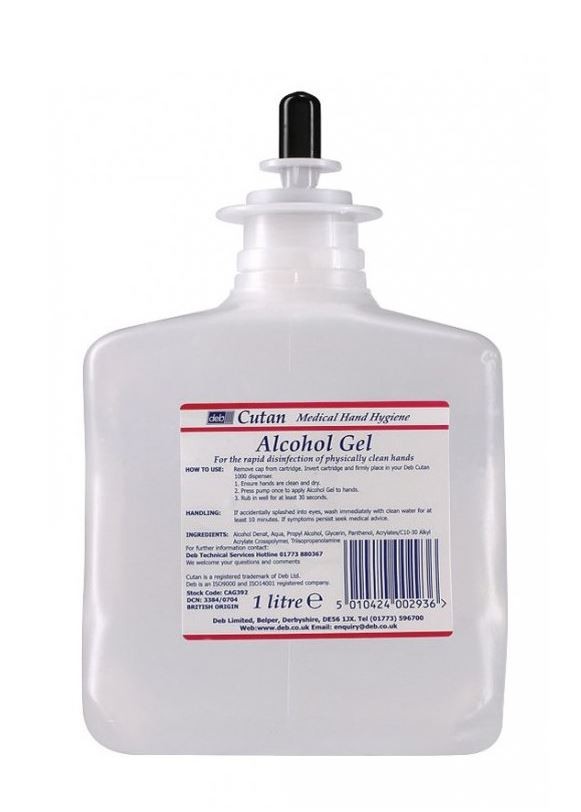Spring may be the time of the year your care home staff often choose to redecorate and freshen up your surroundings. However, it is vital to remember the importance of infection control this Spring in addition to simply freshening up your care home. We have put together some infection prevention tips you can apply to your cleaning schedule.
Infections can often be serious and can worsen existing medical conditions and dramatically affect recovery. However, residents receiving health and social care are often at a risk of developing an infection as a result of poor standards of cleaning and hygiene with healthcare interventions such as surgery, diagnostic testing or invasive devices. Hundreds of millions of patients are affected by healthcare-associated infections worldwide each year, leading to significant mortality and financial losses for health systems. Of every 100 patients in a healthcare setting at any given time, it is estimated that 7 in developed and 10 in developing countries will acquire at least one healthcare-associated infection. Care homes and nursing homes are monitored by the Care Quality Commission (CQC) who hold them to account using section 8 of the essential standards and takes into account the Health and Social Care Act 2008. All care homes have a responsibility to report outbreaks of infection to Public Health England (PHE).
How can you ensure your care home is effective in ensuring efficient infection control?
Maintaining a hygienic environment means observing infection control procedures and protecting your own health, as well as that of your residents. Ensuring you have the correct hygiene products in your care home is vital in maintaining a healthy environment for your care home.
Here are some key areas that you need to focus on for maintaining infection prevention:
- Hand Hygiene
- Personal protective equipment
- Safe handling and disposal of chemical waste
Hand hygiene is perhaps the single most important practice to reduce transmission of infectious agents. This includes the practice of washing with antiseptic soap and water and Alcohol-based products such as gels, rinses and foams without water. A case study by the American Journal of Infection Control in 2007 concluded that hand hygiene is a key component of good hygiene practice in the home and community. It was proven to produce significant benefits in terms of reducing the incidence of infection. This was particularly relevant for gastrointestinal infections but also for respiratory tract and skin infections.
It is ideal to invest in products which will provide a pleasant fragrance and will be gentle on your residents’ skin. Products such as the Cutan Gentle Wash soap are exceptionally gentle and provide the skin with a fruity, scented fragrance.
You can find the range of Cutan hand hygiene products available on our website here:
Care staff have a lot of touch-contact with large numbers of residents during their work. If you work in a care home environment, protective equipment can greatly limit the number of germs that are picked up on your hands. Personal protective equipment includes Isolation gowns, face protection, masks, goggles, face shields and respiratory protection. It is vital to ensure all of your staff are provided with the correct protective equipment.
Your care home should have a written policy on waste disposal, which provides guidance on all aspects, including special waste, pharmaceuticals and cytotoxic waste, segregation of waste and an audit trail. This should include colour coding of bags used for waste. For example, you could use yellow bags for clinical waste, black bags for household waste and special bins for glass and aerosols.
It is important that all staff in your facility are instructed on the safe handling of waste, including disposal and dealing with spillages. Trusts should consider systems for segregating waste that can be recycled. If any of the above are not being implemented healthcare staff should lobby their employers.
Infection control checklist
An effective way to ensure you are maintaining high hygiene standards is to keep an infection control checklist somewhere you and your staff will remember.
Some questions you should include on your checklist include:
– Have you washed your hands?
– Do you need to use personal protective equipment?
– Are you preventing sharp injuries?
– Are you disposing of waste safely?
– Do you deal promptly with spillages?
– Do you scrupulously decontaminate equipment?
– Are you maintaining a clean environment?
– Do you know what to do in the event of an accident?
– Do you know your workplace’s procedures?
